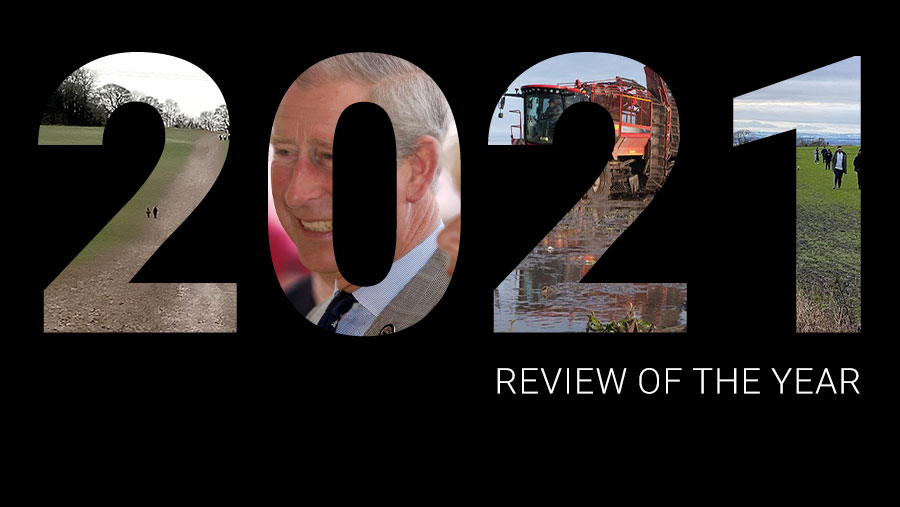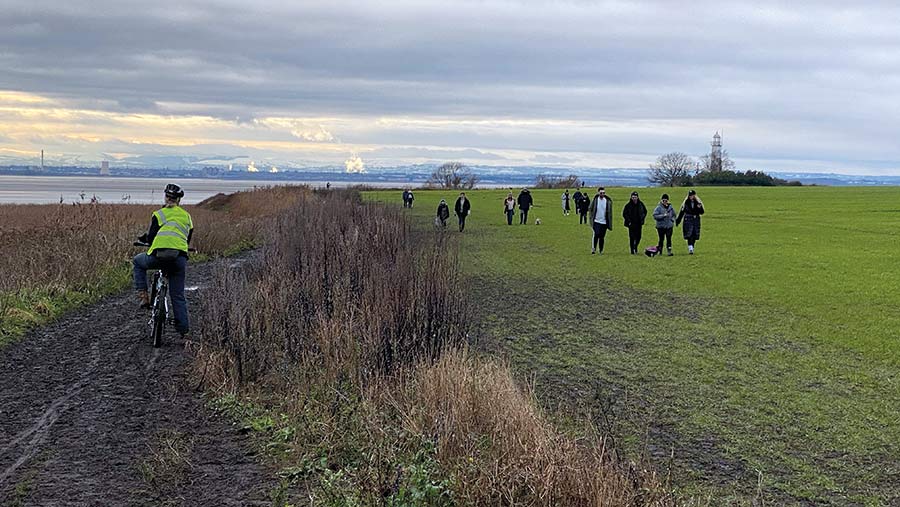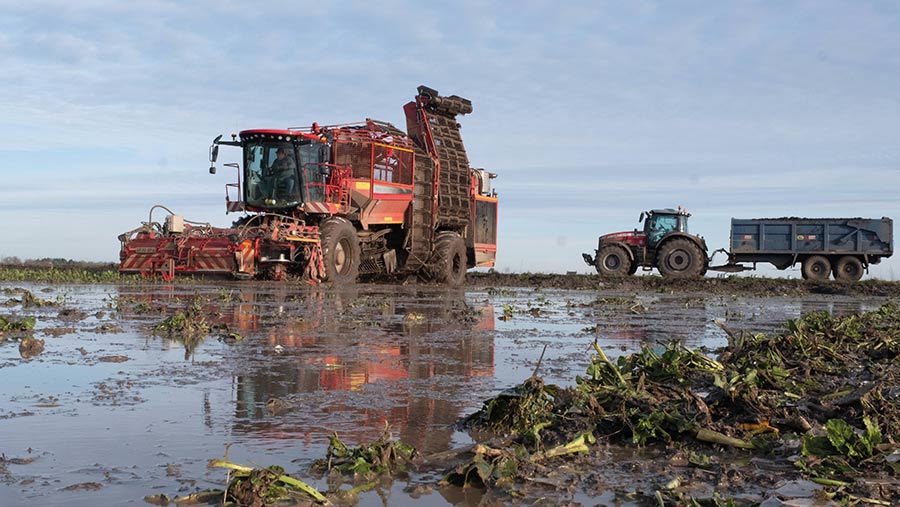2021: What made the farming news in January and February?

The past 12 months have been another rollercoaster ride for British farming. Turbulent weather, sleazy politicians, crazy input and output markets and, of course, Covid.
The future of the AHDB, arguments about Red Tractor, the crisis in the pig sector, an outbreak of avian flu – so many things have been sent to challenge us.
But there has also been cause for celebration, with two sets of Farmers Weekly Awards being testament to that.
Over the next course of this week, we look back at the events that shaped the agricultural news agenda in 2021, taking it two months at a time.
See also: Farmers Weekly Awards 2020: Lifetime Achievement Award
January
The food and farming industries got a taste of life outside the EU, as the 11-month Brexit “transition” came to an end and the new Trade and Co-operation Agreement kicked in.
The early days of “free trade” with the EU were marked by delays, confusion and lost sales, as the EU piled on the red tape for exporters.
Importers, however, were allowed to carry on unimpeded as the UK Border Operating Model was delayed, then delayed again. Food and animal exports fell by 64%, or £700m.
The Oxford Farming Conference went online for the first time as Covid restrictions forced people to stay at home.
It provided a platform for Defra secretary George Eustice to speak favourably about gene editing, described by some as a “watershed moment”, and by others as a “threat to trade”.

© Olly Harrison
Covid triggered a spike in dog ownership and people visiting the countryside, which, combined with a wet winter, turned many footpaths and farmers’ fields into a quagmire.
Dogs were also to blame for a horrific sheep- worrying incident in south Wales, when 50 ewes died after being forced into a corner. This followed the death of 18 sheep in North Yorkshire a week earlier.
Red Tractor opened a Pandora’s box when it announced plans for a major upgrade of its standards. Raising animal welfare, protecting workers’ rights and enhancing environmental protection were the main aims. But social media chatter swiftly turned to the issue of assured British grain having to compete with unassured imports, with no price premium or separate branding.
Horticulturalists were invited to vote on the future of the AHDB levy, as ballot papers were sent to more than 1,000 levy payers.
Dairy farmers were also up in arms, as oat drink company Oatly launched a series of TV ads under the “Help Dad” banner, attempting to “shame” consumers away from cows’ milk.
In a bid to improve water quality in Wales, rural affairs secretary Lesley Griffiths announced that all the country would become a single nitrate vulnerable zone from 1 April – but £13m would be available to improve slurry stores.
NFU Cymru said the funding pledge was “woefully inadequate” given the levels of capital investment needed on farms.
February
Post-Brexit trade in live breeding animals continued to be stymied by the lack of border control posts on both sides of the Channel, with exports to the EU grinding to a halt, and imports reduced to a trickle.
Some imports made it due to a six-month derogation on health checks at the border, but a shortage of certified drivers meant few lorries could make the journey.

© Tim Scrivener
Extreme weather was experienced across the country, with two months of heavy rain leaving sugar beet growers in Lincolnshire lifting beet from sodden fields.
This was followed by Storm Darcy, aka the Beast from the East II, which left much of eastern England and Scotland under snow and farmers helping to clear roads and rescue stranded motorists.
Defra launched plans to phase out badger culling and step up vaccination, much to the chagrin of beef and dairy farmers, as Defra’s own figures showed a 50% reduction in new herd incidents of TB after four years of badger culling.
The Prince of Wales was given a lifetime achievement award as the FW Awards 2020 went online with an all-week series of evening presentations.
Writing exclusively in Farmers Weekly, he praised the “resilience, adaptability and ingenuity” of family farms. Midlothian farm manager Peter Eccles was overall farmer of the year, and Welsh dairy farmer Abi Reader was the Farmers Weekly/NFU Farming Champion.
Herefordshire farmer John Price also hit the headlines, after the Environment Agency launched an investigation into clearance work he had undertaken on a stretch of the River Lugg the previous November. The local Wildlife Trust accused him of “wilful destruction” without the required licence.
The AHDB was left licking its wounds after horticulture levy payers voted to end the levy by 61% to 39%, triggering the eventual winding down of its activities. A similar ballot was launched for potato growers.
Twenty years on from the foot-and-mouth crisis of 2001, farmers spoke of the lasting mental toll while farm and meat trade leaders warned that, with the government eager to sign new free-trade deals around the world, the risks of another outbreak were still very real.
